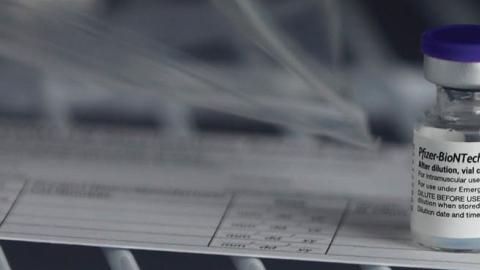The Covid-19 pandemic grinds on with the Delta variant dashing hopes of a return to normalcy this fall. Throughout, politicians and activists have made a scapegoat of intellectual property rights on Covid-19 vaccines and medical treatments. They've blamed intellectual property rights as roadblocks in ending the pandemic.
Last year, the governments of India and South Africa advanced a proposal at the World Trade Organization to strip intellectual property rights from all Covid-19 vaccines and drugs. Their proposal was unsurprising, as generic drug companies are a large part of their national economies. Surprisingly, the Biden administration announced its support for their proposal last spring.
Recently, activists urged President Biden to go even further. They argued he should force companies to hand over their intellectual property using the Defense Production Act.
U.S. support for the intellectual property waiver was a surprise because the ramifications are disastrous. It's unprecedented; the United States has never wavered in its commitment to strong protection of intellectual property rights.
Intellectual property rights in the United States are what made Covid-19 vaccines and other medical treatments possible. These property rights spurred billions in private investments over decades in creating these technologies. Patents formed the basis for creating commercial agreements, manufacturing capabilities, and supply chains to deliver vaccines to patients in record time.
As a result, the healthcare response to Covid-19 has been historic. Never have biopharma companies created and distributed billions of doses of vaccines for an entirely new disease in just over a year. The risk of death from Covid-19, which has unfortunately stricken so many, has been eliminated for hundreds of millions of people due to the creation, manufacturing, and distribution in vaccines facilitated by strong patent rights.
Supporters of tossing out intellectual property rights say it will accelerate global distribution and access to vaccines. They are right that global distribution of vaccines is a problem. By September 2021, 55% of people in developed countries have been fully inoculated, but less than 1% in developing countries.
Yet waiving intellectual property rights on Covid-19 vaccines does nothing to get more shots into arms. As a European Union spokesperson said, "there is no evidence that IP rights in any way hamper access to Covid-19-related medicines and technologies."
The challenges to vaccine distribution lie elsewhere. They include trade barriers in importing and exporting vaccines, and lack of distribution infrastructure in the developing world.
The proposed intellectual property waiver doesn't solve any of these problems, and it causes many others. Dismantling international respect for intellectual property destroys a key sector of the U.S. innovation economy. It also poses a national security threat, giving foreign companies and governments carte blanche to steal American inventions.
Waiving intellectual property for Covid-19 drugs creates a precedent that global protections can be invalidated at the drop of a hat. When governments force companies to hand over their valuable patents and trade secrets, no one will be able to invest with confidence the $2.6 billion required to create the next miracle treatment for cancer or for the next pandemic disease.
Worse, the biotechnology will go everywhere in the world -- technology that can be used for good or ill. The new cutting-edge mRNA biotech platform can make vaccines, or it can make bioweapons. Under the proposed waiver, it will go to countries like China and Russia, authoritarian regimes that are strategic and economic competitors of the US.
To make more vaccines available worldwide, the United States should embrace real solutions. It should release the U.S. stockpile of millions of doses of the AstraZeneca vaccine, which is not approved in the United States, but approved by dozens of countries globally. It should allow the export of much-needed PPE supplies, and it can assist in improving the availability of refrigerated shipping and storage for delivering vaccines in developing countries.
The Biden administration should reverse its support for the intellectual property waiver, which will wreck even more havoc than the pandemic. If it doesn't, Congress should refuse to implement any measures at home. Thankfully, members of the House have submitted an amendment to the Defense Authorization Act that would require the President to oppose any TRIPS waiver unless approved by Congress.
The world needs vaccines. Drug innovators have created them. Stripping them of their intellectual property rights does not solve distribution problems. Worse, it punishes these innovators for their heroic efforts and achievements that have saved tens of millions of lives.
Read in RealClear Health




















